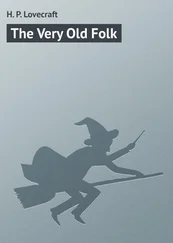“Couldn’t quite say,” Francis said. “Just came to see the family.”
“Will you see Annie and the children?” Molly asked. “Peg sent flowers, you know. I’m sure she and George and Annie will be coming.”
“Don’t know about that,” Francis said. “Don’t know what tomorrow’ll bring. If I’m here and they come I guess I’ll see them.”
Francis had been gone from Albany since 1916, a fugitive from wife and children after his infant son, Gerald, fell and died while Francis was changing his diaper. But Francis had been gone from this family long before that: from the early days of his marriage to Annie Farrell. No, even before that.
Peter watched Francis chew a chicken leg, saw the lineaments of face, the geometry of gesture that had not significantly changed since childhood. The way he wiped his mouth with his knuckle was the same as when he’d sat in that seat and eaten cold chicken fifty years ago. Nobody ever changes: a truth Peter had embraced with reluctance. Did anybody really progress , or was it illusory? (Wasn’t the illusion of change another opiate of believers? Carrot and stick, keep ’em movin’.) Certainly it was illusory in art. After twenty-one years Peter has a one-man show whose meaning he fails to comprehend. Perhaps, he concedes, it has no meaning, and I’ll always be viewed as a pygmy among men.
But he can claim credit for having brought the light to Colonie Street. Top that, brother. There is serious merit in bringing the light. The better to see you with, mon frère. Peter: the voyeur still, where Francis is concerned; and then Peter called up Francis’s last days as an intimate member of this household. That was in ’98, and Francis was eighteen. They were at the table, Mama and all the children sitting then where they are now (Mama’s chair empty now), Sarah then sitting where Papa had sat, for she had become Little Mother, that status her legacy from Papa, who, on his deathbed after the train accident in ’95, grasped her hand and said to all in the room, “I don’t care who gets married as long as Sarah stays home with her mother.” Sarah was twelve then. And hadn’t she done admirably well what her father asked in the thirty-nine years since his death? Oh hadn’t she?
They were finishing supper that night in ’98 when Francis carried his plate to the kitchen and announced that he had to go over and work for Mrs. Daugherty, painting all her interior doors, windows, woodwork, two weeks of evening work at least. Francis then went out the back door and over the fence into the Daugherty back yard. Peter remembered the look on his face as he went: nothing betrayed, no hint that he was off on another mortally sinful expedition into the house of lust.
Lust thrives in the summertime. “Outdoor fucking weather,” is how Peter heard Francis phrase it one day in front of Lenahan’s grocery with half a dozen other boys, all Peter’s elders. Peter did not think Francis had ever experienced any full-scale fucking, outdoors or in. Francis wouldn’t risk that, Peter reasoned, wouldn’t chance the damnation of his immortal soul for all eternity for the sake of “getting his end wet,” another indelible phrase out of Francis. But Peter had gone through his childhood underestimating Francis, misjudging what he would and wouldn’t do. Also Peter perceived in Katrina Daugherty a sensual streak possessed by no other woman he had ever known, loved her face and her hair and her body (body so perfectly designed with the proper arcs and upheavals, body he tried to imagine naked so he could draw it and possess its replica long before he’d ever given a thought to a career as an artist).
And so he waited until summer darkness enveloped Colonie Street, then left the baseball field, where after-supper sport was winding down, and fled across gulley and yard to the apple tree whose upper branches gave sanctuary and vantage to a voyeur seeking to verify the secrets of life and lust among the Daughertys. He had once watched Katrina and her husband, who were unaware that the trees had eyes, half disrobe each other, then walk all but naked up the stairs and out of his sight.
For the past three nights he had watched Katrina alone, or Katrina following Francis around the house, sitting by him while he painted, talking, always talking, never touching or kissing or disrobing, nothing; in sum, that would hold truly serious interest for a spy. But his reading of Francis — that this formidable brother would not be spending his nights painting if all that it availed him was money; that he had to have another motive to keep him from the baseball games that went on three blocks away every night of the summer that was not ruined by rain — kept the spy twined among the branches of the apple tree, waiting for the inevitable.
When it came Peter was not expecting its suddenness, even less so what came with it. His eye found Francis on a ladder, painting the window molding in an upstairs bedroom, saw Katrina’s silhouette in the next room, visible through translucent curtains and moving with a purpose he could not define, saw her then with full clarity when she entered the room where Francis was, this room curtainless to receive the new paint.
Peter was close enough to throw an apple and hit Francis on the ladder, yet was certain he was concealed by the lush leafing of the tree, certain also that on this moonless night his profound purpose was served: the cultivation of an internal excitement like nothing he had ever known. The excitement came not only when he saw Francis and Katrina together (even if they only talked), but more so when she was wandering through the house and talking to herself, or reading a book as she walked, which, irrationally, excited him most: knowing she was oblivious of him and even of her present moment, seeing her transported as much by a book as he was by her solitary grace.
She came to the window, wrapped in a yellow robe, and with a matching ribbon holding her hair at the back of her neck, and looked out at the night, at Peter, seeing only shadows, and the lights next door, seeing nowhere near as much as Peter could see with his night eyes. She stood by the window and spoke (to him, he tried to believe), said clearly, “For thou alone, like virtue and truth, art best in nakedness. .
“Francis,” she then said.
“Yes, Katrina.”
“Thy virgin’s girdle now untie. .”
“What’s that, ma’am?”
And she undid the cloth rope that bound her robe about her waist, opened the robe and then let it fall, then undid her ribbon so that her hair fell loose on her shoulders, and Peter for the first time saw her perfect nakedness, thinking: this can’t be a dream, this must not be a dream, and then she turned her back to him and presented herself to Francis. The branches of the tree moved and Peter looked down in a fit of fright to see Sarah climbing toward him.
“I’ve been watching you,” she whispered. “What are you looking at?”
“Shhhhh,” said Peter, for Sarah’s whisper rang through the night like the bells of St. Joseph’s Church, and he was sure the naked woman had heard.
But she had not. Katrina pursued her plan, embracing Francis about the knees as he stood on the ladder. Sarah, agile as a monkey, was now beside Peter in the crotch of a branch, and so he could not look at what his eyes wanted so desperately to see. But Sarah could look, staring with her usual inquisition at her brother and the naked Katrina, and so Peter rejoined the vision, watching her take her arms from around Francis’s legs and stare up at him as he came down the ladder, then (Sarah unable to restrain a gasp) seeing him kiss her and embrace her naked body. Sarah climbed down the tree then with greater speed than she had climbed up it. She ran off, not toward home but rather, Peter would later learn, toward the church, to seek out the priest and confess in the parish house what she had seen, confessing not her own sin but Francis’s, as if his sin were her damnation as well as his own.
Читать дальше












